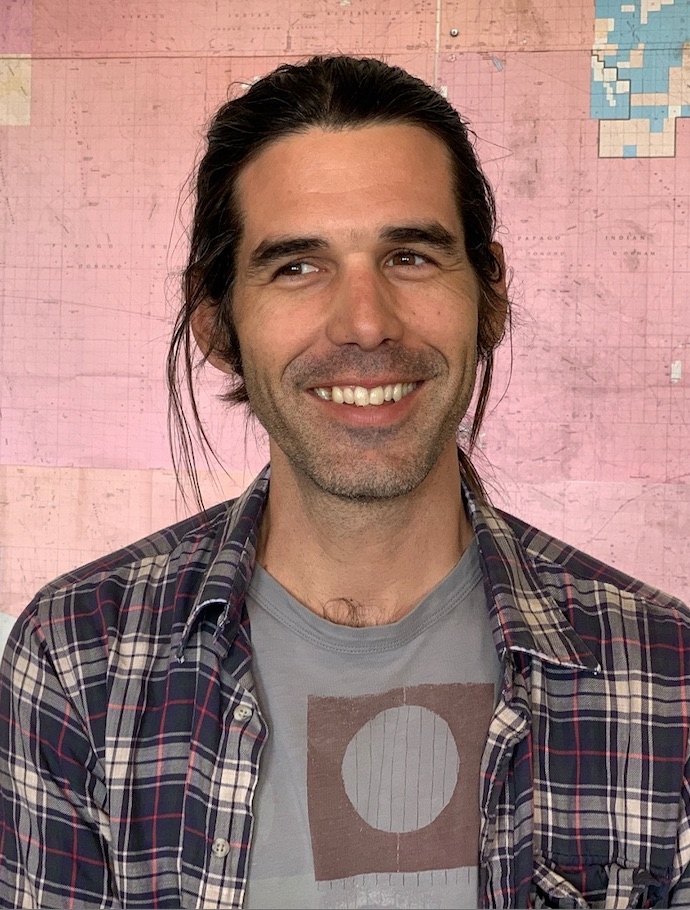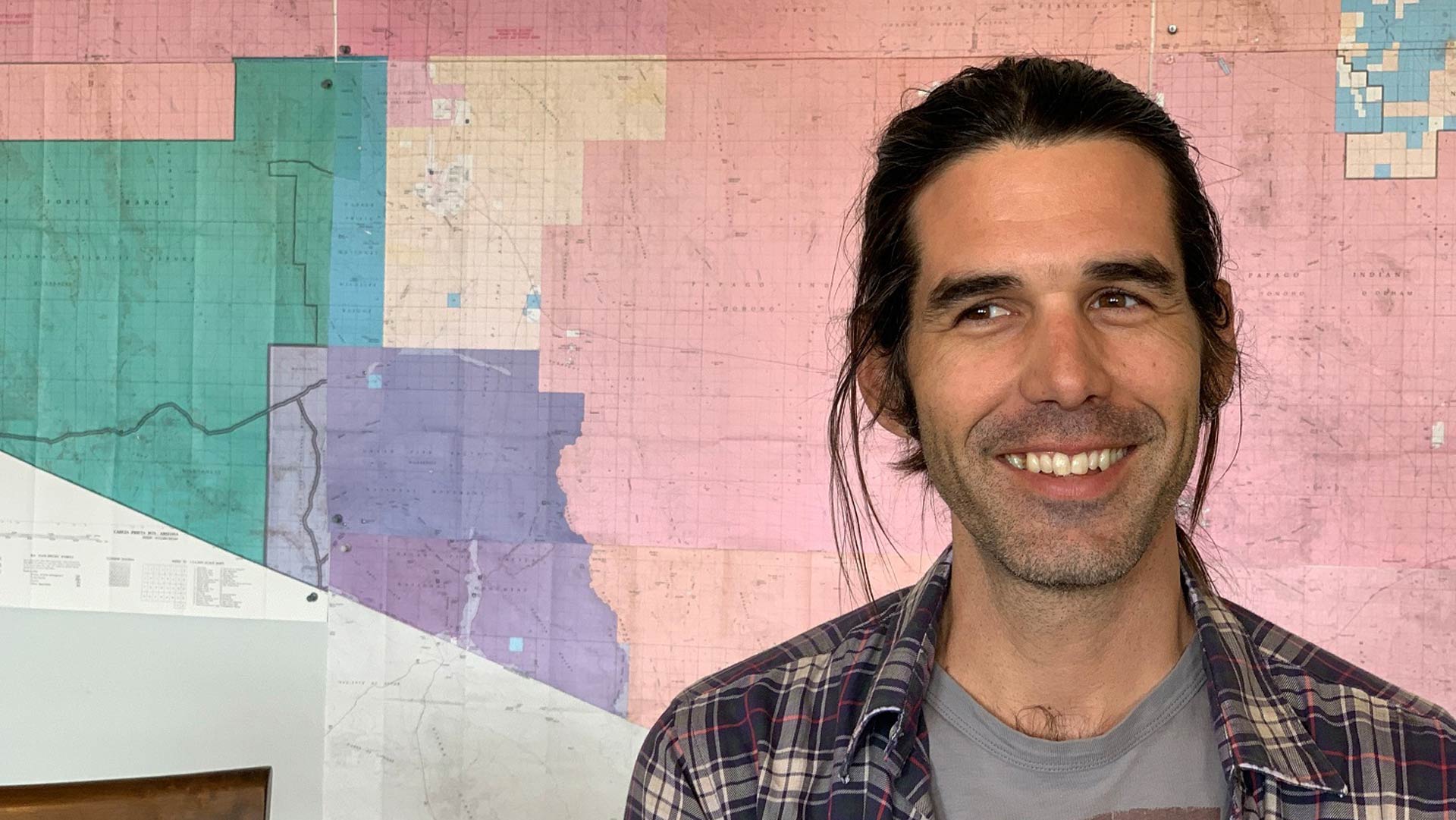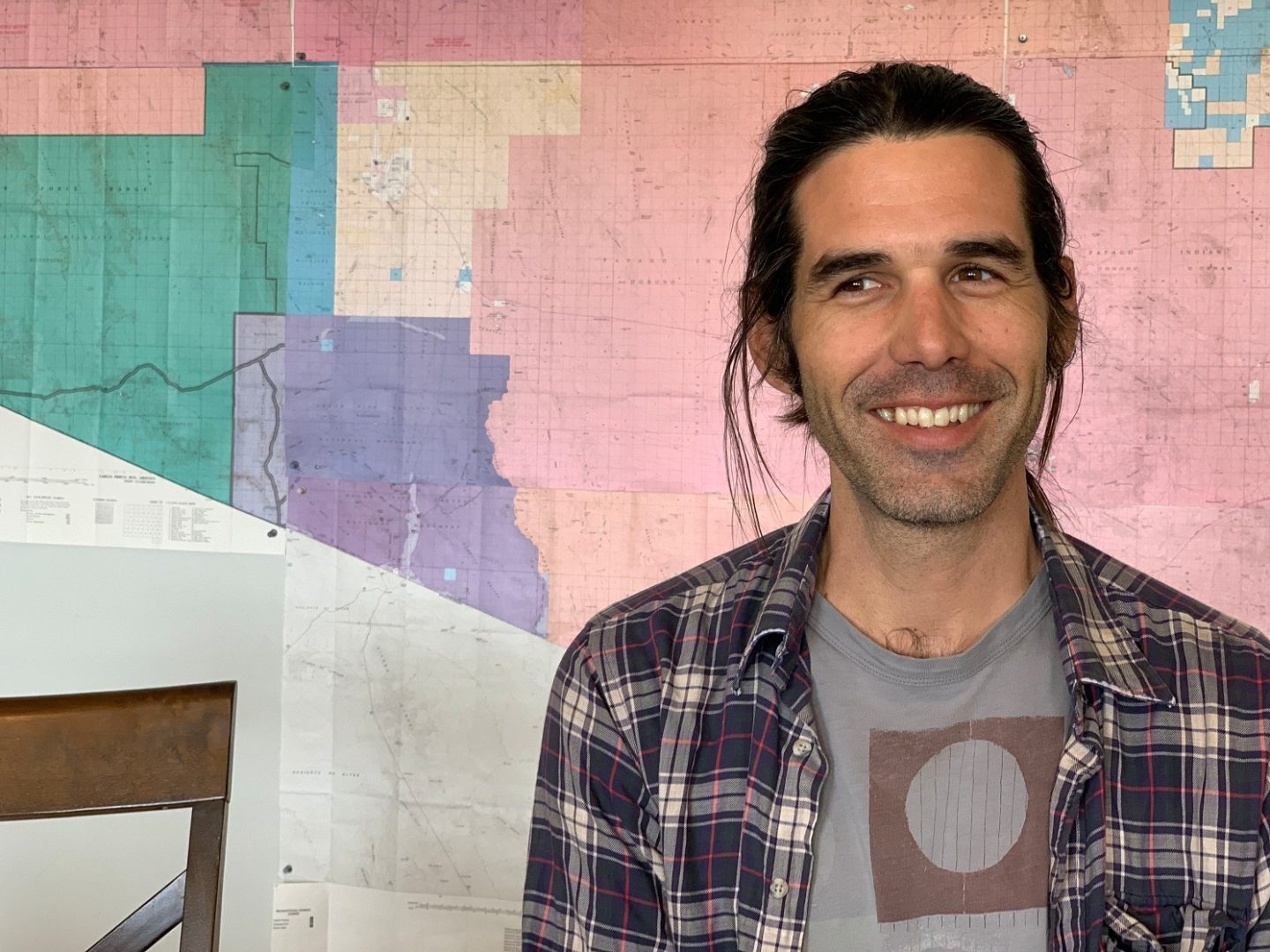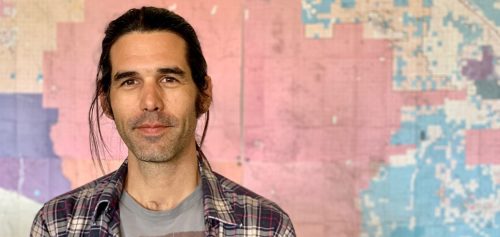"When I last talked to Scott he was in good spirits, in spite of his felony charge and pending trial. Scott puts water and food in the desert where people might die without it otherwise, and he knows that this is the right thing to do."
Carrot Quinn, The Guardian, https://www.theguardian.com/global/2018/jan/26/scott-warren-no-more-death-arrested-migrants-waterRead more:
Place of the fight for human rights: Ajo, Sonora, Arizona
No More Deaths (No Más Muertes)
Location: Ajo, ArizonaReason for entry:
Function / Activity: Coordination and organization of the humanitarian aid
Leitmotif
Scott Warren, Professor of Geography at the University of Arizona, is a volunteer for the organization “No More Deaths”. The organization provides humanitarian aid to prevent further deaths of migrants in the Sonora Desert. In January 2018, Scott Warren was arrested for providing water and shelter to migrants at the border. The trial for “criminal harbouring and conspiracy” would have resulted in up to 20 years imprisonment, but was ended in June 2019 with no result as the jury could not agree on a verdict. A new trial has been announced for November 2019.
How did the story become known?
The organization “No More Deaths” regularly publishes press releases on the status of the trial.
When did the story become known?
Press statement “Border Patrol arrests humanitarian-aid provider and two individuals receiving care” of “No More Deaths”, January 23, 2018 http://forms.nomoredeaths.org/border-patrol-arrests-humanitarian-aid-provider-and-two-individuals-receiving-care/
Where did the story become known?
see above
By whom did the story become known?
see above
Testimony / Witness before / in
- Religious attitude
- Volunteering
- Charity (NGOs)
Asylum

INTRODUCTION
Scott Warren, Professor of Geography at the University of Arizona, is a volunteer for the organization “No More Deaths”. The organization provides humanitarian aid to prevent further deaths of migrants in the Sonora Desert. In January 2018, Scott Warren was arrested for providing water and shelter to migrants at the border. The trial for “criminal harbouring and conspiracy” would have resulted in up to 20 years imprisonment, but was ended in June 2019 with no result as the jury could not agree on a verdict. A new trial has been announced for November 2019.
THE STORY
Scott Warren, USA
“No more deaths.”
As a volunteer for the humanitarian organisation No More Deaths, Scott Warren provides vital humanitarian aid to protect the right to life of migrants and prevent further deaths of migrants and asylum seekers in the Sonora Desert. The geographer with a doctorate has lived in the city of Ajo in the US state of Arizona since 2013. Ajo is located about 56 kilometres north of the US-Mexican border in the Sonora Desert, in the middle of a corridor about 110 kilometres wide, which is used by migrants on their way to the USA. He has been arrested there as well. The arrest took place only hours after the publication of a report by “No More Death”, which documents the deliberate destruction of humanitarian aid in the border area between the USA and Mexico by the border authorities.
“No More Deaths” (“No Más Muertes” in Spanish) dumps water and other humanitarian aid in desert areas where the number of deaths among migrants is high.
The Arizona section is the deadliest in the US: in the past twenty years, the US border authorities have registered 7242 deaths at the border, of which about 38.3 percent were in Arizona. The actual number of deaths is probably higher.
The harsh action at the US-Mexican border against activists who stand up for the human rights of migrants is more related to the Trump administration’s attack on the US asylum system and immigration policy in general.
For more information, see Amnesty International’s 2018 report You Don’t Have Any Rights Here, which documents how people seeking security and protection in the US are systematically denied their right to asylum at the border.
” You have no rights here”
Since 1994, the concept of “prevention through deterrence” has been used, which almost completely prevents migration in urban areas through walls and militarisation, so that it shifts to dangerous areas. This deterrence strategy includes a variety of tactical measures to prevent asylum seekers from applying for entry into the US through official entry points. This puts them in a situation where it often makes more sense to take one of the extremely dangerous “irregular” routes to get to the US. These tactical measures include the current system of “registering” asylum seekers, which forces them to add their names to the illegal waiting lists of thousands more asylum seekers, few of whom, if any, are called daily. Stranded on the Mexican side of the border, migrants and asylum seekers (especially from vulnerable groups such as LGBTI, the elderly, unaccompanied minors, pregnant women, etc.) are often targeted victims of kidnapping, extortion and violence by organized crime and are generally more vulnerable. In view of these massive risks, many take the difficult decision to cross the border outside the official entry points, even on dangerous routes through the desert. They are often dependent on the help of smugglers.
As the Trump administration continues to set upper limits for the number of asylum seekers processed at the official ports of entry, the number of families crossing the border irregularly has increased. The number of families crossing the US-Mexico border irregularly seeking asylum and international protection is probably higher than that of other persons.
Author: Hans Christoph Hudde








